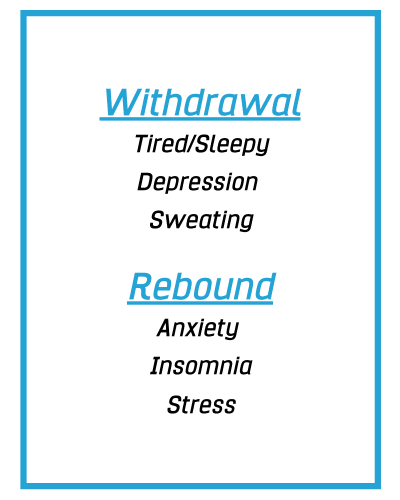What is a Medical Detox Center?
Medical Detox or Detoxification is the process by which an addicted person clears their body from alcohol and or drugs due to substance use disorder. And begin recovery from their addiction. Drug rehabilitation and detox centers help clients ease and reduce withdrawal symptoms and their corresponding dangerous side effects. Going into a detox center is generally the first step clients take to begin long-term recovery treatment.
While medical detoxification is the first part of substance abuse rehabilitation, it is usually followed by dual-diagnosis, behavioral therapy, medication, and continued integrated care. Detox is designed to minimize the dangerous side efforts and discomfort of withdrawal symptoms that follow the cessation of chemical dependency. Detox centers many times are essential to help clients overcome their physical dependency on drugs and alcohol.
Why is Medical Detox Treament So Important?
Did you know that in some situations, withdrawal from substance abuse can be life-threatening? That’s why utilizing a twenty-four-hour medically supervised inpatient addiction and rehabilitation detox center can be so important. Supervised medical care Detox centers offer a safe environment where healthcare professionals use custom-tailored medications along with other treatments to ease withdrawal and safely manage their side effects when you stop using.
Detox is only the first part of addiction treatment. Clients must get rid of their addictive drugs and alcohol out of the body to be in a place where they can begin treatment beyond the initial withdrawal stage. This is required not just for the critical positive impact on the brain, but also for the rest of the body including the heart, cardiovascular system, liver. Substance abuse can negatively impact just about everything when it comes to clients’ health.
What’s Withdrawal Treatment Like?
Withdrawal can be quite different for each person. Even one’s withdrawal symptoms duration along with the types of withdrawal medications prescribed will vary based on the type of addiction a person is suffering from. Likewise, detox treatment can vary depending on each client’s health conditions, family history, and the safety profile best applied for each individual treated.
It’s important to remember that medical detox does not treat the underlying behavioral, environmental, or other triggers of addiction. Detox is the first step in the addiction treatment process and should be followed by educational therapy, one-on-one, group therapy, and other long-term intensive outpatient support services.

Who Needs Medical Detox Treatment?
When a person abuses alcohol or drugs for an extended period of time, their body becomes dependent on the continued use of the substance in ever-larger doses. As the human brain gets accustomed to the way the abused chemical(s) affects it, it begins to adapt, so as to function normally. Over time, the brain builds tolerance requiring the user to consume ever-higher doses of the addicted drug to feel the same effects and the same levels as before.
This is where tolerance to chemical dependency typically leads to dependence and addiction. This is where the brain begins to exhibit withdrawal symptoms forcing one to get high just to function normally. And where the addicted person does not consume the drug or goes cold turkey cutting off all use, the body reacts negatively. Withdrawal symptoms causing headaches, fevers, vomiting and a number of other side effects will appear driving continued use to fix these negative physical symptoms. Here, the brain begins to constantly crave the drugs causing one’s addiction, when it doesn’t receive them.
Don’t Wait. Call Now. Get Help. Your recovery is our mission. Our 24/7 hotline is available to help you with any questions. We’ll help guide you or a loved one to a hopeful and fulfilling future. Regain your future and family now. Our guiding principles are simple, yet game-changing. Offering evidence based-treatment, real accountability, attentive and warm professional staff with individualized treatment.

Detoxification Process at a Professional Detox Center
Professional detoxification in a detox center from alcohol and other drugs involves three essential components, including:
- Evaluation: which is where the clinical professionals at a detoxification center perform a thorough evaluation of patients’ physical and psychological condition and history. Initial evaluations may assess a person’s acute intoxication and withdrawal potential, biomedical conditions, and more. From this assessment, the clinical professionals are able to recommend a detoxification level of care and create an individualized treatment plan for patients.
- Stabilization: which entails a detox center following an individualized treatment plan and its prescribed therapies and medications to assist a patient through a safe withdrawal experience.
- Fostering a patient’s entry into longer-term substance abuse treatment: which can increase a person’s chances of sustaining their recovery and avoid relapse. Detox alone is rarely sufficient to help a person sustain long-term recovery as it doesn’t address the complex psychological and social aspects substance use.2 A powerful goal of detoxification treatment is to prepare clients for their next ideal phase of rehabilitation, which may be short-term residential treatment, long-term residential treatment, or outpatient care.
Although these are some of the most standard components and goals of detoxification, patients’ individual goals, duration in treatment, and overall treatment processes may vary. Detoxification is a professional detox center that may also involve the use of various medications to help a patient manage their withdrawal symptoms safely, comfortably, and in a controlled environment.
Different Types of Treatment at a Professional Detox Center
There are various types of professional detoxification programs at a detox center to fit a patient’s clinical needs. Many detox centers employ the “medical model” of detoxification, which means a clinical staff made up of physicians and nurses who use certain medications to help people safely detox.
Detox can take place in a wide variety of settings and at varying levels of intensity. The Substance Abuse and Mental Health Services Administration identifies five detoxification “placement levels of care” within the detoxification realm of treatment, including:
- Ambulatory Detoxification Without Extended On-Site Monitoring: This level of care is an organized outpatient service monitored at predetermined intervals. Examples of this type of detoxification might take place in a physician’s office or under the supervision of a home health care agency.
- Ambulatory Detoxification With Extended On-Site Monitoring: This type of detoxification is similar to the placement level of care above but requires the availability of credentialed nurses who monitor patients for several hours a day.
- Clinically Managed Residential Detoxification: This type of detoxification provides 24/7 supervision and may sometimes be referred to as “social detoxification” because it has minimal medical oversight, but focuses on peer and social support.
- Medically Monitored Inpatient Detoxification: This level of care is more restrictive than the Clinically Managed Residential Detoxification placement level of care. Inpatient detoxification consists of 24/7 care and supervision and support for patients experiencing withdrawal symptoms.
- Medically Managed Intensive Inpatient Detoxification: This level of care is the most restrictive placement level of care in the detoxification program realm, and provides 24/7 care and supervision for patients experiencing withdrawal symptoms in an acute care inpatient setting.
Medical detoxification may be provided on an inpatient treatment, residential, or outpatient basis, and may exist as part of a larger substance abuse rehabilitation program or operate on its own. Patients with complicated medical or psychiatric needs are more likely to require detoxification in an inpatient setting.
Can I Detox at Home?
Detoxing at home is risky and even dangerous. For one, it may be more difficult for some to stay the course in their home environment, where exposure to certain people or things could trigger a relapse or return to drug use. In rare cases, alcohol detox can cause delirium tremens (DT), a life-threatening condition that can lead to stroke, heart attack, and death if left untreated. For these reasons, alcohol detox is usually done in a hospital, detox center, or alcohol rehab facility.
Most people turn to professional detox services, like those offered at We Level Up California, to make their detox experience safe and as comfortable as possible. It may be beneficial to reach out to a drug detox center near you, speak to your physician or therapist, or call our drug addiction helpline for free information on how to detox from your drug of choice in a safe environment. They can help you better understand your treatment options. Some detox centers even offer same-day admission, depending on their admittance capacity, your location, and various other factors.

What Happens After Detox?
Detox alone is rarely sufficient in helping a person achieve long-term recovery, and is only the first stage of addiction treatment. Often, patients decide to enter a substance abuse rehabilitation program once they’re finished with their detox program. Effective treatment needs to address a person’s drug abuse and any associated medical, psychological, social, vocational, and legal problems. Treatment should be appropriate to the individual’s age, gender, ethnicity, and culture. Medication may be included; however, behavioral therapies are the most commonly used forms of treatment for substance abuse.
Identifying success in the realm of addiction treatment may require people to reframe preconceived ideas about what recovery means. The goal of addiction treatment is to return a person to productive functioning in their family, job or school, and community. Addiction is similar to other chronic illnesses, which means that some people will relapse – but this does not mean that treatment wasn’t successful. Instead, it could mean adjustments in treatment or a return to a treatment center where the additional focus can be put on changing their deeply rooted behaviors.
Don’t Let Anything Hold You Back
You’re here because you know you can’t go on like this. You know you need to change. You’ve probably spent months, even years convincing yourself and anyone around you that your drug & alcohol use “isn’t so bad.” Make this your time to get help before it’s too late to salvage your life.
We are help clients via integrated dual-diagnosis along with secondary mental health treatment programs. We’re a top-notch treatment center with a team of specialists whose mission is quality care. Offering comprehensive medical detox, inpatient rehab to primary addiction disorders.
Not a Good Time?
Clearly, the sooner you treat addiction, the better. Why worry about missing family or work, since you’re already missing out using, getting high and fixating on your next fix, and getting sick. Your job can be guaranteed by law while in treatment. Questions? Let us know, we can help.
Sources
[1] Substance Abuse and Mental Health Services Administration. (2015). Detoxification and Substance Abuse Treatment.
[2] National Institute on Drug Abuse. (2018). Principles of Effective Treatment.
[3] National Institute on Drug Abuse. (2018). How Effective is Drug Addiction Treatment?
[4] National Institute on Drug Abuse. (2020). Treatment and Recovery.